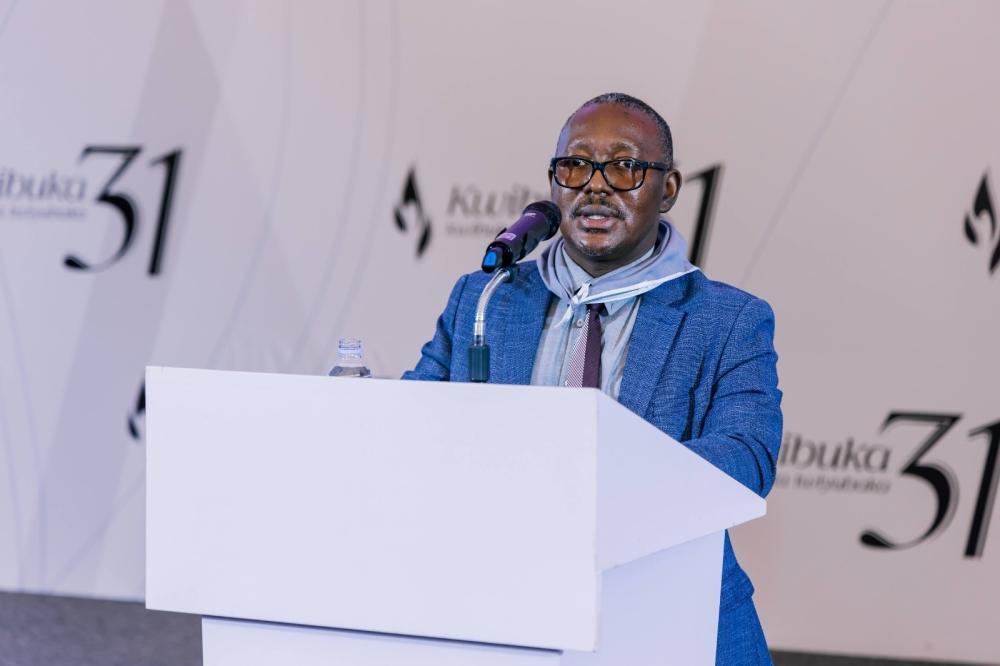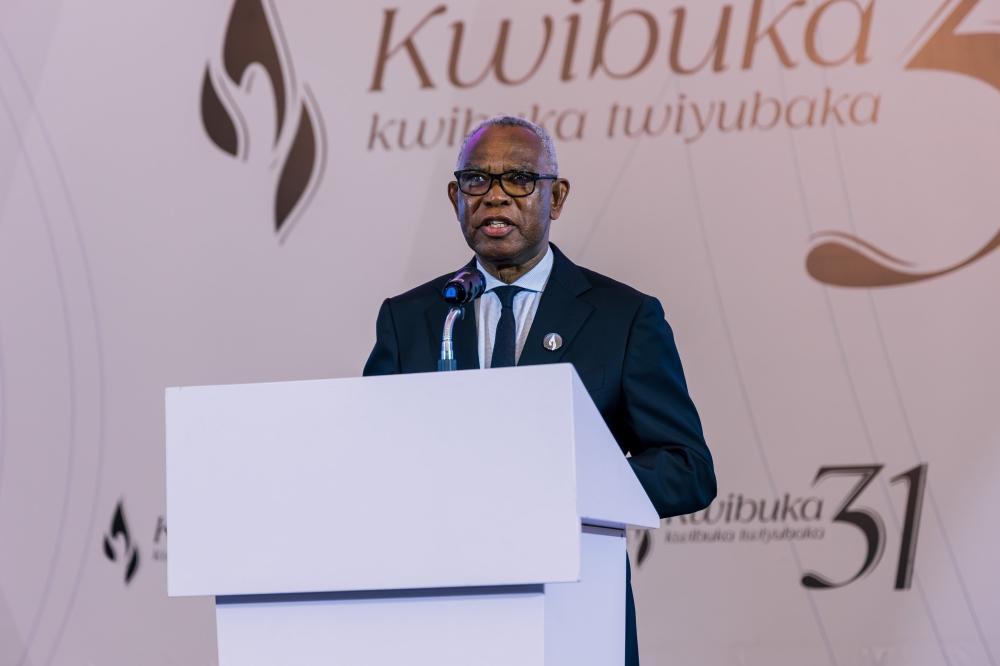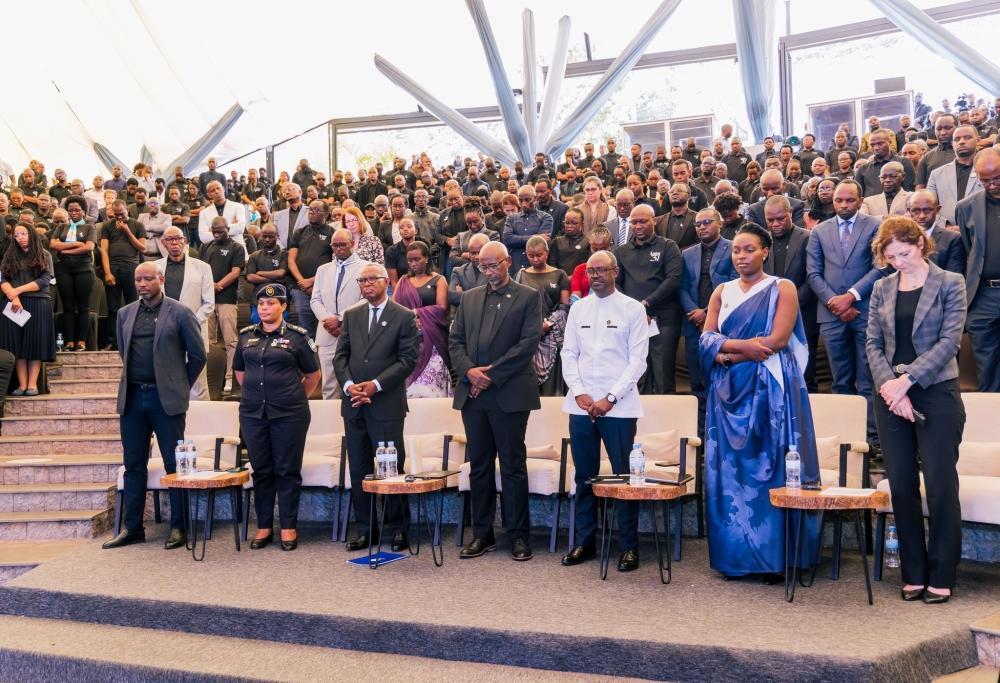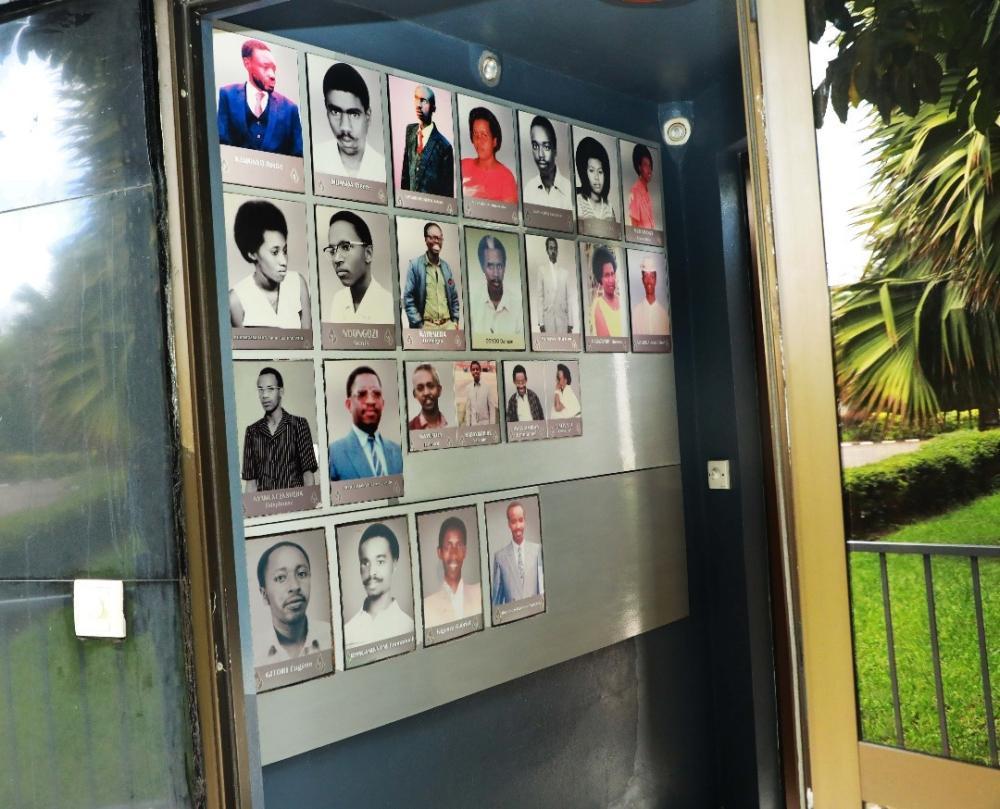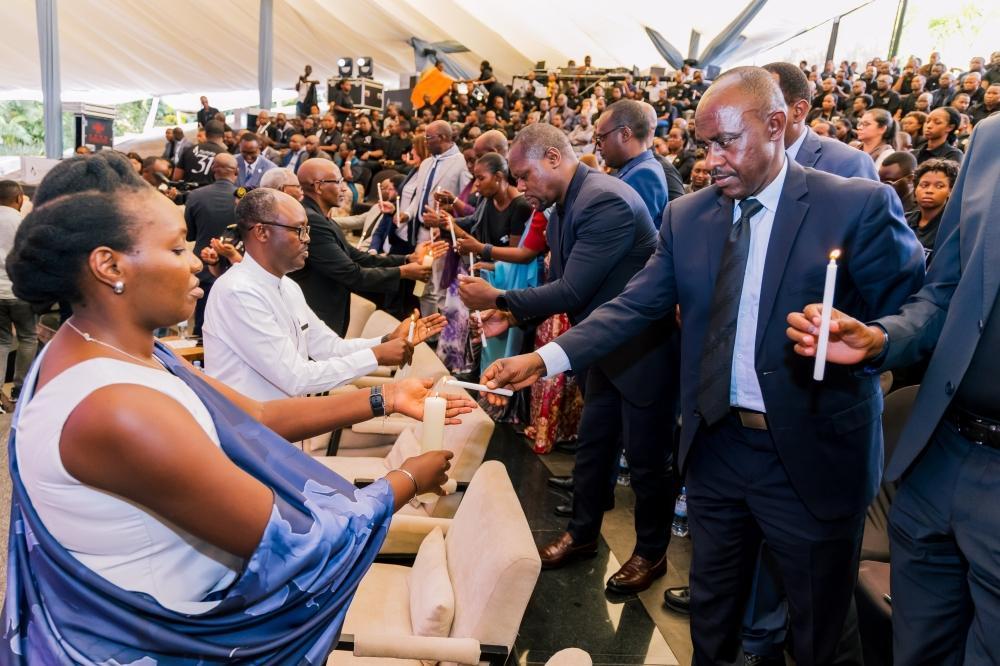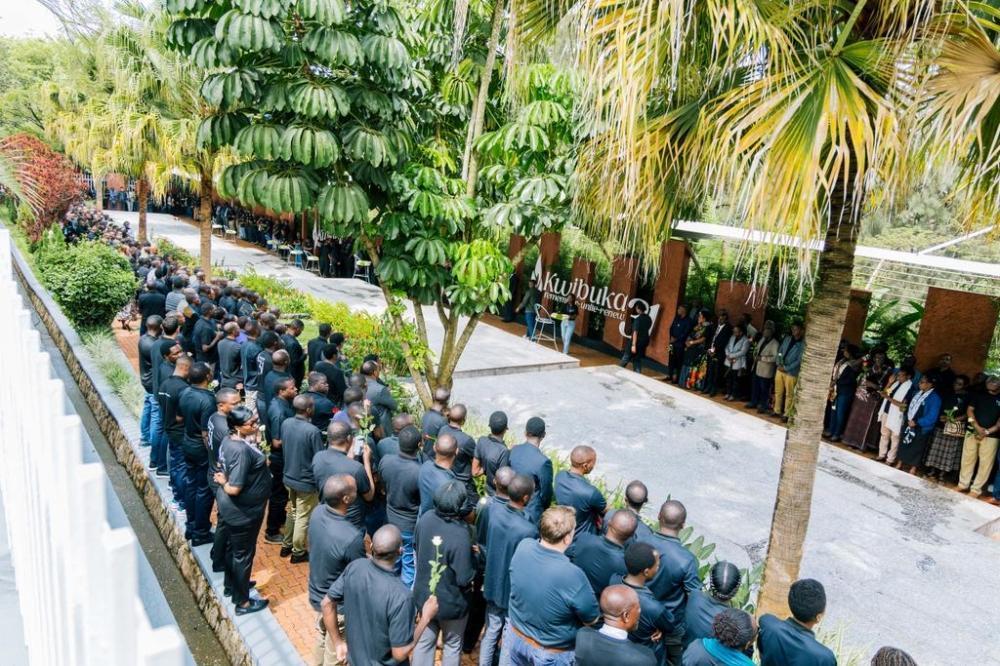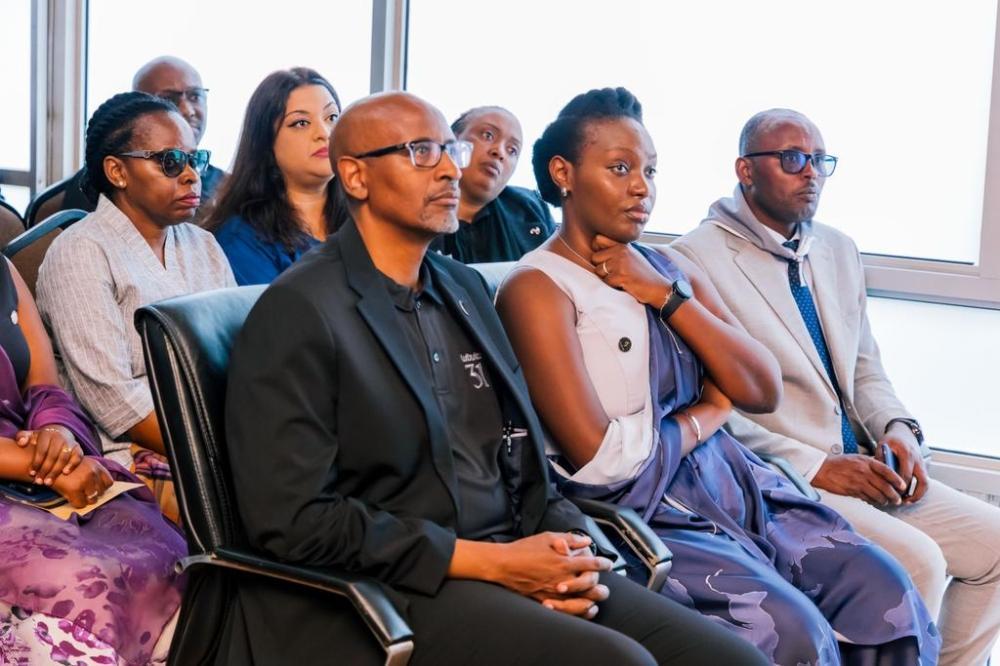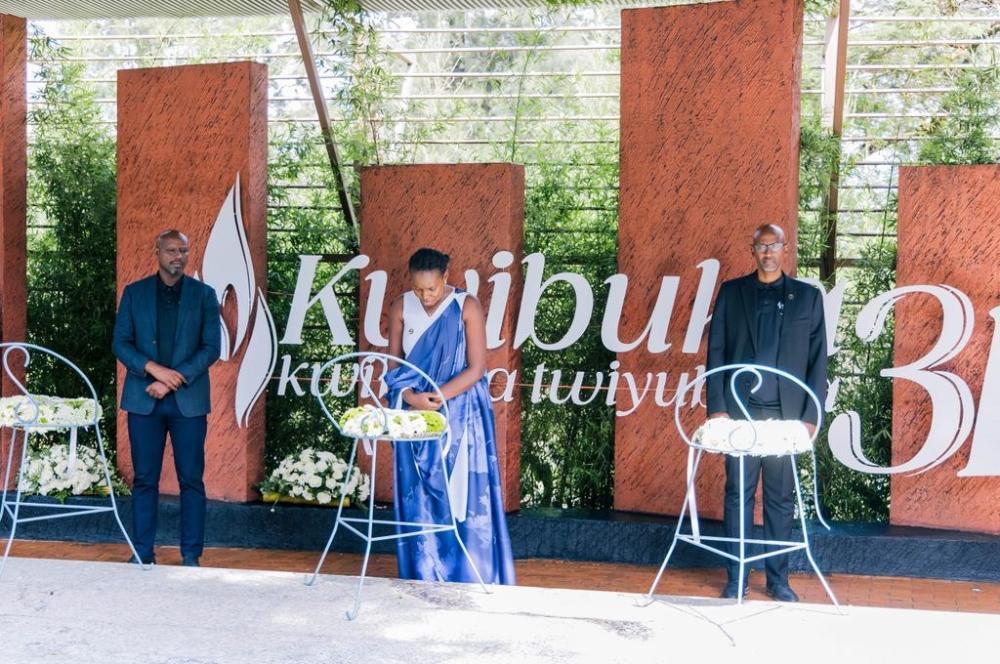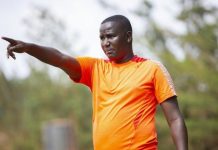Africa-Press – Rwanda. As the Ministry of Education held a commemoration event to honor 77 of its former employees who were killed in the 1994 Genocide against the Tutsi, Egide Kayitare shared a testimony about the discrimination he endured in his pursuit of education as a Tutsi student in the years prior to the massacres.
Now a professor at the University of Rwanda’s College of Medicine and Health Sciences, Kayitare recounted how systemic exclusion and deep-rooted ethnic discrimination nearly robbed him of his dreams.
“My scholarship was rejected several times just because I was Tutsi,” he told the audience during the event, which included a wreath-laying ceremony at a memorial site the ministry and a visit to the Kigali Genocide Memorial.
“My life has been linked to the Ministry of Education since childhood,” Kayitare began. Born and raised in Nyamasheke, he witnessed firsthand the rise of ethnic discrimination, especially in the aftermath of the 1973 coup d’état led by Juvénal Habyarimana.
“Being a Tutsi was a problem even before 1994, I remember a group of men coming to our house; one of them, Kagabo, hit my mother on her ribs in 1973.
My father, a respected veterinarian and the only one in our village who owned a radio, was once accused of possessing weapons and was taken to the sector office, where he signed that our cousins would never visit us again because they were allegedly called Inyenzi.”
Inyenzi was the name for armed refugees who launched raids on different parts of the country in the 1960s and early 70s.
From a young age, Kayitare saw how education was weaponized against Tutsi students. “In primary school, the curriculum was deeply biased in some subjects. When we were taught about the Rwandan flag, we were told the red represented the blood of the Hutu killed by Tutsi. History lessons painted us as dictators, instilling hatred and suspicion,” he said.
He recalled one of the eye-opening incidents that happened when he was a pupil. “I remember an incident in primary five when soldiers came to arrest one of our teachers, just because he was Tutsi. They claimed he was training Inyenzi rebels and had a weapon. The same accusations were later directed at my father. That was when I knew it was false. These were attempts to isolate and intimidate us.”
Despite being a top performer, Kayitare was denied access to secondary education through regular government channels. However, he managed to attend Nyundo Seminary, which was known for non-discrimination, discipline, and merit-based admission.
“When I completed my seminary stuadies, there were scholarships awarded based on district allocations. I didn’t qualify for any; not because I wasn’t capable, but because I didn’t ‘fit’ the ethnic criteria.”
A scholarship was denied repeatedly
At one point, after completing his secondary school studies through his aunt he approached a parliamentarian named Barigira, whose wife worked in the Ministry of Education’s scholarship department requesting for his help for him to pursue his studies. Batigira was impressed by his academic performance and said that he deserved a scholarship to study in Russia. However, Kayitare was denied the scholarship three times. “I was disqualified all those years, and for the last time, I was told my documents had failed the ‘criminology check’. But I knew the real reason was clear; I was Tutsi.”
Eventually, he took up a teaching job. “It was the only option available to me at the time,” he said.
Kayitare was among the first people saved by the Rwandan Patriotic Army (RPA) before the genocide. “In 1990, following peace talks, Tutsi students were promised fair treatment, and I finally received a scholarship to attend the University of Rwanda.”
However, life on campus was far from peaceful. “There were constant threats and divisions. Some students openly said they had killed Tutsi before and would do it again if the RPA took over.”
He said that the Genocide was prepared and never was caused by the former President Habyarimana’s plane crash, as some claim.
Kayitare said that when the Genocide broke out during the Easter holidays in 1994 he was in Shangi. “Many were killed there. I survived thanks to the help of a Hutu person who helped me to flee to what was then Zaire (now DR Congo). Even there, I was interrogated and asked how we the Tutsi had ‘killed Habyarimana.”
Despite the suffering and obstacles, Kayitare later returned home, resumed his studies, and takes pride in contributing to rebuilding Rwanda’s future through education.
Representative of families that lost their relatives who were staff at MINEDUC.
Mourners observing a moment of silence during the commemoration at Kigali Genocide Memorial.
For More News And Analysis About Rwanda Follow Africa-Press

